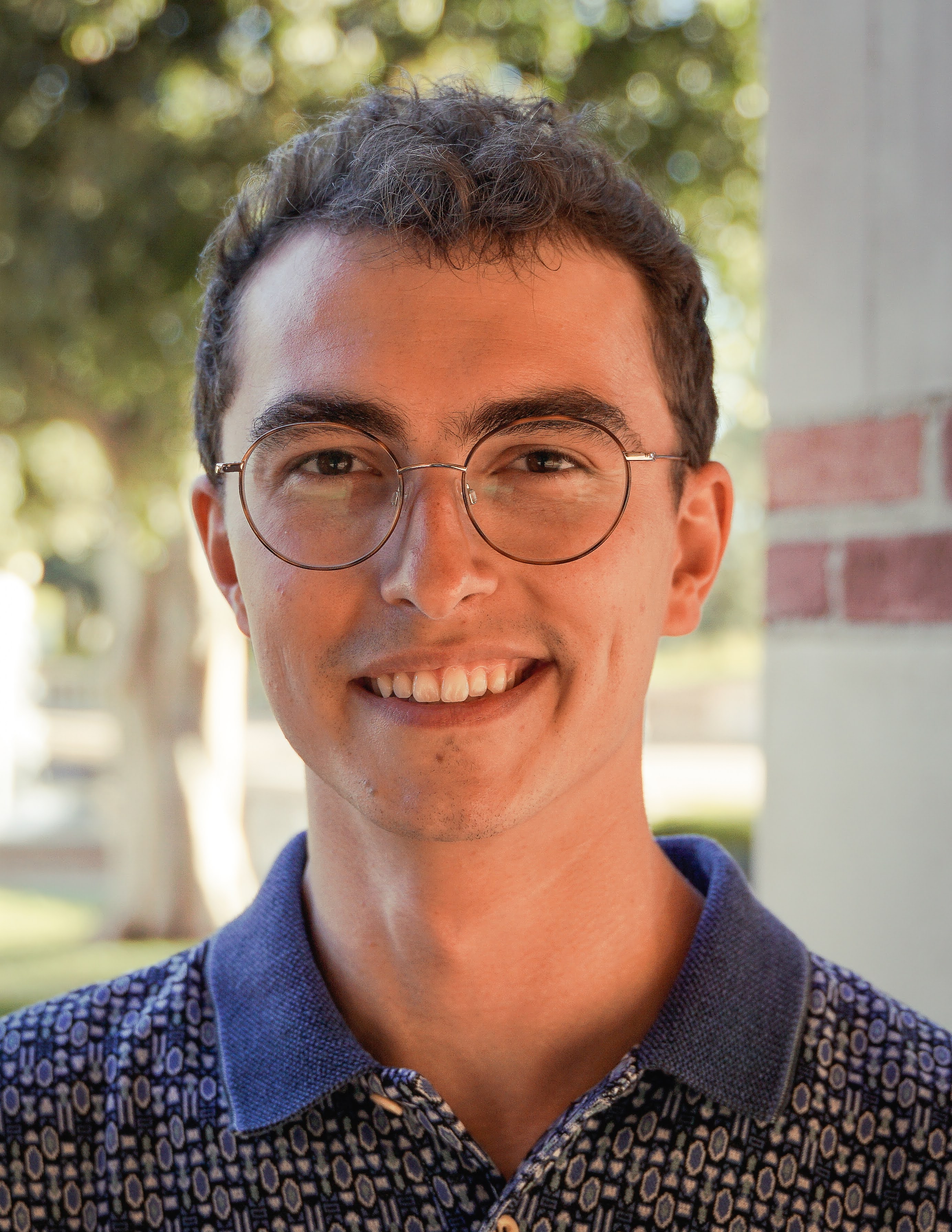
Address
University of California, Los Angeles
Los Angeles, CA 90095
The Practical Causal Inference (PCI) Lab at UCLA advances and applies methods that allow researchers and practitioners to make “safer” and more realistic causal conclusions in real-world scenarios. Such methods extract available useful information while reducing risk of generating over-confidence in a possibly badly biased result. We refer to this approach as “practical causal inference.”
The PCI Lab serves as a multidisciplinary intellectual hub, producing research, providing training and mentorship, and spearheading collaborative initiatives across campus and beyond.
Professors Onyebuchi Arah and Chad Hazlett lead an interdisciplinary team of students, postdoctoral scholars, and early-career faculty dedicated to advancing the field of causal inference and its practical application. They mentor students and postdoctoral scholars in the health, social, and physical sciences, including statistics, political science, epidemiology, biostatistics, education, communications, sociology, medicine, and computer science.
 Scott Mueller
PhD Student, Web Developer and Co-manager
UCLA Department of Computer Science
Scott Mueller
PhD Student, Web Developer and Co-manager
UCLA Department of Computer Science
Research interests include bounds, policies, and decision making on Probabilities of Causation, monotonicity, and selection bias.
 Keri Lintz
PhD Student, Lab Manager
UCLA Luskin School of Public Affairs, Social Welfare
Keri Lintz
PhD Student, Lab Manager
UCLA Luskin School of Public Affairs, Social Welfare
My research interests include social policy evaluation, causal inference methods, early childhood development, family well-being, early adversity prevention, and structural inequality. The aim of my research is to understand how public policies and other structural factors shape early foundations for healthy outcomes over the lifespan.
 Doeun Kim
PhD Candidate
UCLA Department of Political Science
Doeun Kim
PhD Candidate
UCLA Department of Political Science
My research interest lies in causal inference in social science. My substantive research interest includes international political economy and interest group politics.
 Matthew Coates
PhD Student
UCLA Department of Epidemiology
Matthew Coates
PhD Student
UCLA Department of Epidemiology
I am interested in using causal inference methods to better model potential impact of interventions and policies on population health. I am also interested in methods involving simulation for causal inference, including quantitative bias analysis and systems science modeling.
 Elizabeth Frank O'Neill
PhD Student
UCLA Department of Statistics
Elizabeth Frank O'Neill
PhD Student
UCLA Department of Statistics
My research interest is in approaches to generalizability and transportability, particularly with applications in medicine, and the teaching of statistics.
 Soonhong Cho
PhD Candidate
UCLA Department of Political Science
Soonhong Cho
PhD Candidate
UCLA Department of Political Science
I am broadly interested in causal inference and machine learning methods for the social sciences. My research projects include partial identification of causal quantities and causal inference with survey and voting data.
 Anne Hjorth Thomsen
PhD Student
Aarhus University, Department of Public Health
Anne Hjorth Thomsen
PhD Student
Aarhus University, Department of Public Health
I'm a Ph.D. student enrolled at Aarhus University in Denmark. In my research I use the Danish National Birth Cohort and the Danish registers to investigate the association between parental socioeconomic factors and reproductive health in children using causal inference methods.
 Camilla Lomholt Kjersgaard
MD, PhD student
Aarhus University, Department of Public Health
Camilla Lomholt Kjersgaard
MD, PhD student
Aarhus University, Department of Public Health
My primary interests include reproductive epidemiology, causal inference methods, and dermatology. During my PhD, I am researching the relationship between atopic dermatitis and various reproductive health outcomes.
 Tanvi Shinkre
PhD Student
UCLA Department of Statistics
Tanvi Shinkre
PhD Student
UCLA Department of Statistics
My current research focuses on causal effect estimation and applications of causal methods in public policy settings.
 Davis Vo
PhD Student
UCLA School of Education & Information Studies
Davis Vo
PhD Student
UCLA School of Education & Information Studies
Mixed methods inquiry, academic and labor market experiences of community college students, historically minoritized communities, equity and justice.
 Jack Kappelman
PhD Student
UCLA Department of Political Science
Jack Kappelman
PhD Student
UCLA Department of Political Science
I study American Politics and Methodology. My broad research interests are in representation, political behavior, and public policy in state and local governments in the United States, centering on studying the politics of firearm ownership and firearm-based violence and suicide.
 Haotian Chen
PhD Student
UCLA Department of Political Science
Haotian Chen
PhD Student
UCLA Department of Political Science
I use machine learning and causal inference tools to study the political economy of U.S. elections.
 Borna Bateni
PhD Student
UCLA Statistics and Data Science
Borna Bateni
PhD Student
UCLA Statistics and Data Science
My current research interests include developing new models for causal inference and synthetic data generation using tools from transfer metric learning and optimal transport.
 Thea Emily Benson
PhD Student
Aarhus University, Department of Public Health
Thea Emily Benson
PhD Student
Aarhus University, Department of Public Health
I have a master’s degree in health science and a great passion for epidemiological research. Currently, I study how pubertal development affects mental health problems in adolescence.
 Ryan Baxter-King
PhD Candidate
Department of Political Science
Ryan Baxter-King
PhD Candidate
Department of Political Science
I study how real-world events interact with voters’ partisan attachments to shape elections and public opinion in the United States. I am broadly interested in electoral accountability, political economy, and political psychology, especially when these topics intersect with public health and gun violence.
 Nathan Hoffmann
PhD Candidate
UCLA Department of Sociology
Nathan Hoffmann
PhD Candidate
UCLA Department of Sociology
Nathan uses the cases of education and sexuality to study how state policies and other national institutions shape social inequality for immigrants. He also engages in methodological research with the aim of educating social scientists in advanced statistical and machine learning methods.
 Baffour Adusei-Poku
Undergraduate Student
UCLA College of Letters and Sciences - Integrative Biology and Physiology
Baffour Adusei-Poku
Undergraduate Student
UCLA College of Letters and Sciences - Integrative Biology and Physiology
My current research interests involve causal effects on physiological diseases and the application and effectiveness of treatments on different patient populations.
 Hyunyong Lee
MS Student
UCLA Department of Epidemiology
Hyunyong Lee
MS Student
UCLA Department of Epidemiology
My research interest lies in chronic disease epidemiology, with a particular focus on exploring causal association in the presence of incomplete data.
 Eka Jose
MD/MPH Student
UCLA David Geffen School of Medicine
Eka Jose
MD/MPH Student
UCLA David Geffen School of Medicine
My research interests include adult and child psychiatry, specifically relating to mood disorders, substance use, family dynamics, and unhoused populations.
 Jade Moore
MS Student
UCLA Department of Epidemiology
Jade Moore
MS Student
UCLA Department of Epidemiology
My research interests include infectious diseases, women’s reproductive health, and occupational health.
 Duy Pham
PhD Student
UCLA Department of Statistics
Duy Pham
PhD Student
UCLA Department of Statistics
My research is in heterogenous treatment effects, specifically in social settings like education research and policy evaluation.
 Roch Nianogo
Assistant Professor
UCLA Department of Epidemiology
Roch Nianogo
Assistant Professor
UCLA Department of Epidemiology
The goal of my research is to develop and utilize innovative and rigorous epidemiologic, econometric and causal inference methods, as well as computational modeling and simulation tools for investigating the impact of lifestyle, metabolic and social interventions in preventing chronic diseases.
 Kosuke Inoue
Associate Professor
Department of Social Epidemiology, Kyoto University
Kosuke Inoue
Associate Professor
Department of Social Epidemiology, Kyoto University
I am a physician-epidemiologist specializing in the application of various causal inference methods, particularly in the field of chronic disease epidemiology. My recent work focuses on identifying mechanisms (e.g., causal mediation analysis and the front-door formula), detecting heterogeneity (i.e., heterogeneous treatment effect estimation), and generalizing/transporting study results.
 Ryan Cook
Assistant Professor
Oregon Health & Science University, School of Medicine
Ryan Cook
Assistant Professor
Oregon Health & Science University, School of Medicine
I am interested in generalizing results of substance use treatment clinical trials to people with multiple co-occurring mental health disorders.
 Christina Fille
Associate Professor
Institute of Social Work, School of Economics | Dar es salaam, Tanzania
Christina Fille
Associate Professor
Institute of Social Work, School of Economics | Dar es salaam, Tanzania
My research interests are in Development Economics, Labour Economics, and Girls Education, Gender Equality.
 Andrew Bertoli
Assistant Professor
School of Politics, Economics, and Global Affairs, IE University
Andrew Bertoli
Assistant Professor
School of Politics, Economics, and Global Affairs, IE University
My research explores the social and political effects of modern sports. I also work to improve social science methods for causal inference, in particular regression discontinuity analysis and survey designs.
 Benjamin Seligman
Clinical Instructor
Geriatric Research, Education, and Clinical Center, VA Greater Los Angeles Health Care System and Department of Medicine, UCLA David Geffen School of Medicine
Benjamin Seligman
Clinical Instructor
Geriatric Research, Education, and Clinical Center, VA Greater Los Angeles Health Care System and Department of Medicine, UCLA David Geffen School of Medicine
I am interested in target trial emulation from observational data and the application of causal inference to questions about aging physiology.
 Cecilia H. Ramlau-Hansen
Professor
Department of Public Health, Research Unit of Epidemiology, Aarhus University
Cecilia H. Ramlau-Hansen
Professor
Department of Public Health, Research Unit of Epidemiology, Aarhus University
My key contributions to science are in the field of reproductive epidemiology with a strong focus on the potential effects of prenatal and early life exposures on pubertal development, semen quality, fecundity, fertility and infertility. I have extensive expertise in conducting epidemiologic studies in large birth cohorts and nationwide Danish/Nordic registries by using causal inference methods.
 Nis Brix
MD, PhD
Departments of Public Health & Clinical Genetics, Aarhus University
Nis Brix
MD, PhD
Departments of Public Health & Clinical Genetics, Aarhus University
My research area is reproductive epidemiology with a special focus on early life causes and genetics.
 Falco J. Bargagli-Stoffi
Assistant Professor
UCLA Department of Biostatistics
Falco J. Bargagli-Stoffi
Assistant Professor
UCLA Department of Biostatistics
My research interests are primarily in methodological and applied (bio)statistics with a focus on applications of causal inference and machine learning in public and environmental health.
 Adam Rohde
PhD; Senior Decision Scientist
UCLA Department of Statistics; ZipRecruiter
Adam Rohde
PhD; Senior Decision Scientist
UCLA Department of Statistics; ZipRecruiter
My research interests include developing tools that aid practitioners in making more credible causal inferences, sample selection as a threat to both internal and external validity, placebo methods, and the connections between causal frameworks and across identification strategies.
 Pablo Geraldo Bastías
Postdoctoral Fellow
Nuffield College, University of Oxford
Pablo Geraldo Bastías
Postdoctoral Fellow
Nuffield College, University of Oxford
I study causal inference in observational and quasi-experimental settings, with a focus on identifying the effects of social inequality on people's life outcomes.
 Stacey Rowe
Postdoctoral Associate Fellow
University of San Francisco
Stacey Rowe
Postdoctoral Associate Fellow
University of San Francisco
I am an infectious diseases epidemiologists, with research interests in maternal, perinatal and pediatric vaccine program evaluation. I have considerable experience in the use of linked data to support communicable disease surveillance and control, and in overseeing public health intelligence programs to support policy development and implementation.
 Gabrielle Stanco
District Director, Research, Planning, and Data Management
North Orange County Community College District
Gabrielle Stanco
District Director, Research, Planning, and Data Management
North Orange County Community College District
My research is focused on providing timely and practical information about our students, employees, and programs to assist our institutional leadership in making decisions. Recent projects have included evaluating EEO/employee diversity hiring practices, examining the impact of adding a winter term, monitoring campus climate trends, and assessing student progress toward achieving the statewide Vision for Success Goals.
 L. Paloma Rojas-Saunero
Postdoctoral Scholar
Department of Epidemiology, FSPH, UCLA
L. Paloma Rojas-Saunero
Postdoctoral Scholar
Department of Epidemiology, FSPH, UCLA
I am a dementia researcher, focused on extending causal inference methods and the target trial framework to study time-varying exposures related to dementia incidence, with a particular interest on selection bias and competing events.

August 2023
Simultaneous adjustment of uncontrolled confounding, selection bias and misclassification in multiple-bias modelling International Journal of EpidemiologyAdjusting for multiple biases usually involves adjusting for one bias at a time, with careful attention to the order in which these biases are adjusted. A novel, alternative approach to multiple-bias adjustment involves the simultaneous adjustment of all biases via imputation and/or regression weighting. The imputed value or weight corresponds to the probability of the missing data and serves to 'reconstruct' the unbiased data that would be observed based on the provided assumptions of the degree of bias.
August 2023
Monotonicity: Detection, Refutation, and RamificationThe assumption of monotonicity, namely that outputs cannot decrease when inputs increase, is critical for many reasoning tasks, including unit selection, A/B testing, and quasi-experimental econometrics. It is also vital for identifying Probabilities of Causation, which, in turn, enable the estimation of individual-level behavior. This paper demonstrates how monotonicity can be detected (or refuted) using observational, experimental, or combined data. Using such data, we pinpoint regions where monotonicity is definitively violated, where it unequivocally holds, and where its status remains undetermined. We further explore the consequences of monotonicity violations, especially when a maximum percentage of possible violation is specified. Finally, we illustrate applications for personalized decision-making.
Software: Monotonicity Necessity and Sufficiency, Link: Interactive plot for necessary and sufficient regions of monotonicity
July 2023
From “Is it unconfounded?” to “How much confounding would it take?”: Applying the sensitivity-based approach to assess causes of support for peace in Colombia The Journal of PoliticsAttention to the credibility of causal
claims has increased tremendously in recent years. When relying on
observational data, debate often centers on whether investigators have ruled
out any bias due to confounding. However, the relevant
scientific question is generally not whether bias is precisely zero, but
whether it is problematic enough to alter one’s research conclusion. We argue
that sensitivity analyses would improve research practice by showing how
results would change under plausible degrees of confounding, or equivalently,
by revealing what one must argue about the strength of confounding to sustain a
research conclusion. This would improve scrutiny of studies in which non-zero
bias is expected, and of those where authors argue for zero bias but results
may be fragile to confounding too weak to be ruled out. We illustrate this
using off-the-shelf sensitivity tools to examine two potential influences on
support for the FARC peace agreement in Colombia.
January 2022
Causal Effect of Chronic Pain on Mortality Through Opioid Prescriptions: Application of the Front-Door Formula EpidemiologyBackground: Chronic pain is the leading cause of disability worldwide and is strongly associated with the epidemic of opioid overdosing events. However, the causal links between chronic pain, opioid prescriptions, and mortality remain unclear.
Methods: This study included 13,884 US adults aged ≥20 years who provided data on chronic pain in the National Health and Nutrition Examination Survey 1999-2004 with linkage to mortality databases through 2015. We employed the generalized form of the front-door formula within the structural causal model framework to investigate the causal effect of chronic pain on all-cause mortality mediated by opioid prescriptions.
Results: We identified a total of 718 participants at 3 years of follow-up and 1260 participants at 5 years as having died from all causes. Opioid prescriptions increased the risk of all-cause mortality with an estimated odds ratio (OR) (95% confidence interval) = 1.5 (1.1, 1.9) at 3 years and 1.3 (1.1, 1.6) at 5 years. The front-door formula revealed that chronic pain increased the risk of all-cause mortality through opioid prescriptions; OR = 1.06 (1.01, 1.11) at 3 years and 1.03 (1.01, 1.06) at 5 years. Our bias analysis showed that our findings based on the front-door formula were likely robust to plausible sources of bias from uncontrolled exposure-mediator or mediator-outcome confounding.
Conclusions: Chronic pain increased the risk of all-cause mortality through opioid prescriptions. Our findings highlight the importance of careful guideline-based chronic pain management to prevent death from possibly inappropriate opioid prescriptions driven by chronic pain.

University of California, Los Angeles
Los Angeles, CA 90095
